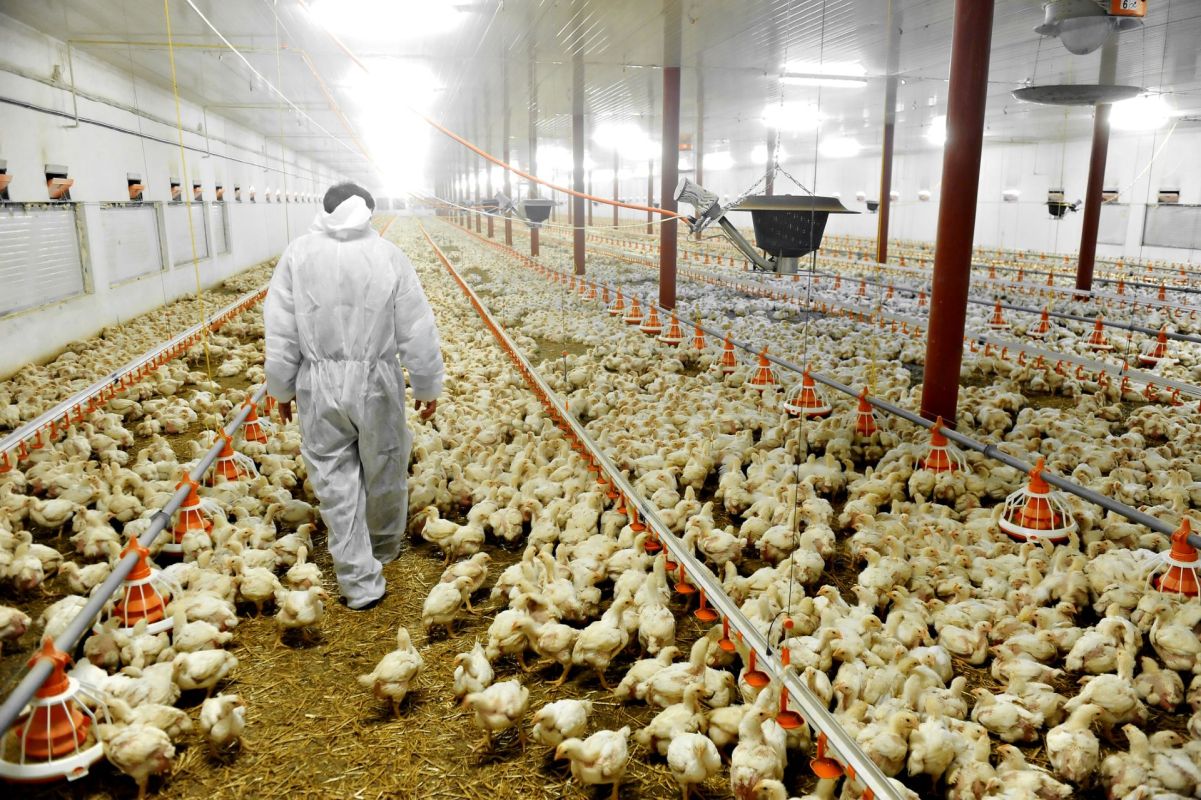North Carolina residents have filed a civil rights complaint about the disgusting living conditions created by the poultry industry.
According to Civil Eats, due to a loophole in policy, chicken farms have been allowed to exist and expand in the state without any permitting, which has led them to expand into low-income counties with disproportionate populations of people of color. Civil Eats says that the complaint effectively states that North Carolina's "Department of Environmental Quality (DEQ) is discriminating against Black, Native, and Latin American residents by failing to regulate the [poultry] industry."
How bad are these conditions? In the complaint, resident Henry Brewer described the piles of chicken litter next to his home, which contain a mixture of urine, feces, and sawdust. "Each of the five piles is over 8 feet tall. They stand there and start fuming off. The odor is terrible," Brewer said. "Sometimes it feels like the flies are about to eat us alive — the dogs can't even live in the yard."
North Carolina's chicken industry has ballooned to raising close to a billion chickens per year, which creates a lot of waste, Civil Eats reports. Since this waste can pollute the water and air in the communities that contain the farms, the lack of regulation on the poultry industry is a serious problem for local residents, as the pollution can potentially be fatal if ingested and can also cause lung and eye irritations, according to Sciencing.
The current EPA administrator, Michael Regan, used to be in charge of North Carolina's DEQ, which adds some personal connection to the case.
"The administrator has deep knowledge of the issues in North Carolina and the political challenges that have resulted in DEQ taking the approach that it has," Christophe Courchesne, a professor at Vermont Law and Graduate School and attorney who worked on the complaint, told Civil Eats. "We take him at his word that the federal administration is committed to environmental justice and where there are issues like these identified, that the agency will take action."
"This [complaint] is long overdue, and it should have animated the civil rights work at EPA since its inception," Courchesne said. "Now, given direction from the top, hopefully EPA will act expeditiously on these types of complaints and really push the state agencies that are the subject of these complaints to change their practices in ways that help these communities."
Join our free newsletter for cool news and actionable info that makes it easy to help yourself while helping the planet.









